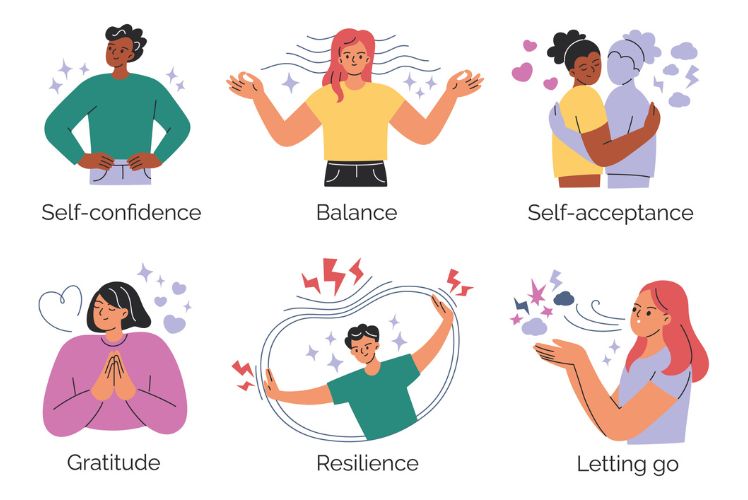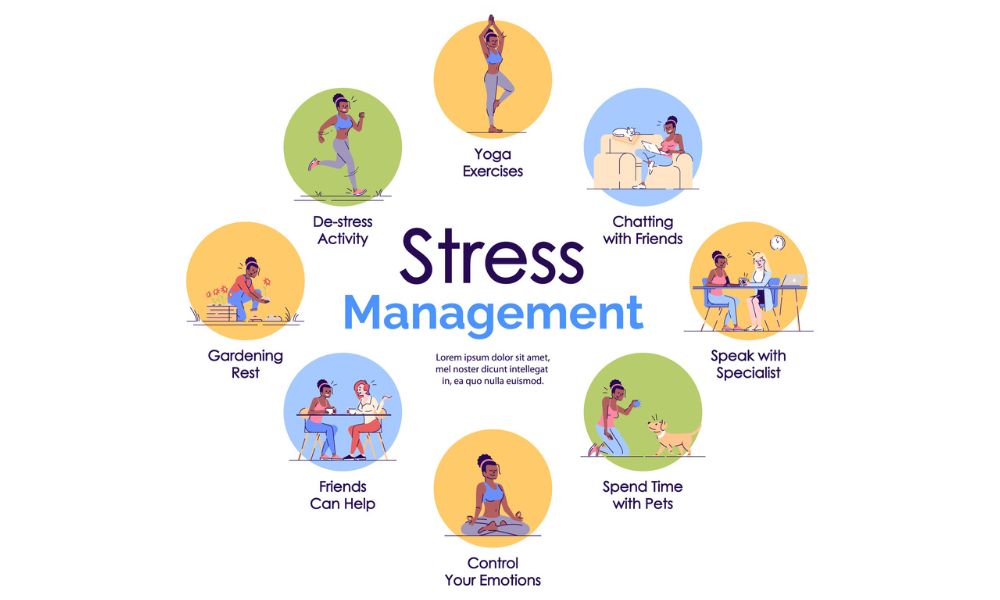Mindfulness plays a crucial role in managing our emotions, especially anger. By practising mindfulness, we can learn to recognise our anger triggers and respond to them calmly. This practice helps us maintain better control over our reactions and fosters healthier relationships with ourselves and others.

Incorporating mindfulness techniques into our daily lives can significantly impact our overall wellbeing. These practices allow us to slow down, observe our feelings, and understand the underlying reasons for our anger. From meditation to physical activities, there are various strategies we can employ to effectively manage our anger during challenging situations.
As we explore mindfulness practices, we will discover effective techniques that empower us to handle anger constructively. By embracing mindfulness, we can transform our emotional responses and cultivate a greater sense of inner peace.
Key Takeaways
- Mindfulness helps us understand our anger triggers.
- Practical techniques can reduce emotional outbursts.
- Mindfulness fosters healthier relationships and personal wellbeing.
Understanding Anger and Its Impact on Wellbeing
Anger is a common emotional response that can affect our mental and physical health. Recognising its nature and understanding its effects are essential steps in managing this powerful emotion.
The Nature of Anger
Anger is a natural reaction to perceived threats or injustices. It serves as a warning signal, alerting us to situations that we find unacceptable. Feeling anger can lead to various responses, from mild irritation to intense rage.
We experience anger when our expectations are unmet, whether due to personal relationships, work situations, or societal issues. It's important to note that while anger is a normal emotion, it can become problematic when it leads to negative behaviours or when we struggle to control it.
Mindfulness practices can help us recognise and accept our anger without letting it control our actions. By observing our feelings, we can choose how to respond rather than react impulsively.
Effects on Mental and Physical Health
Anger can have significant impacts on our mental and physical health. Chronic anger is linked to various mental health conditions, including anxiety and depression. We may experience heightened stress levels, which can lead to complications in our emotional wellbeing.
Physically, unmanaged anger can result in increased heart rate and blood pressure, contributing to health issues like heart disease. Studies have shown that angry outbursts can also impair immune function, leading to more frequent illnesses.
Moreover, persistent anger can strain our relationships with others, causing feelings of isolation. By understanding the effects of anger, we can see the importance of finding healthy ways to express and manage this emotion. Mindfulness techniques offer a pathway to regain control and promote overall wellbeing.
Fundamentals of Mindfulness
Mindfulness is crucial for managing emotions, especially anger. It involves being aware and present in each moment. Practising mindfulness can help us respond to anger in healthier ways. Below, we explore the core concepts and how we can integrate mindfulness into our daily lives.
Core Concepts of Mindfulness
At the heart of mindfulness is awareness. This means noticing our thoughts, feelings, and surroundings without judgment. We understand that feelings of anger can arise, but being aware of them allows us to pause and reflect.
Two main components define mindfulness:
-
Attention: Focusing on the present moment helps us engage with our emotions. It allows us to recognise angry thoughts before they escalate.
-
Non-reactivity: We learn to observe our feelings without immediately acting on them. This creates space for healthier responses rather than impulsive reactions.
Practising these core concepts regularly can lead to better emotional regulation and lessened anger outbursts.
Mindfulness in Everyday Life
Integrating mindfulness into our daily routines can be simple yet impactful. We can start by setting aside a few moments each day to practise. Here are some methods:
-
Breathing Exercises: Focusing on our breath helps anchor us to the present moment. We can take deep breaths whenever we feel anger rising.
-
Mindful Walking: Paying attention to each step allows us to connect with our bodies and surroundings. This can reduce feelings of agitation.
-
Mindfulness Apps: There are various applications that guide us through mindfulness practices. These can remind us to take a moment for ourselves.
Applying mindfulness techniques helps us manage anger and promotes emotional well-being. By staying aware and present, we can respond to challenges more calmly.
Anger Management Through Mindfulness
Mindfulness can help us manage anger by increasing awareness of our emotional responses. By recognising what triggers our anger and practising non-reactivity, we can gain better control and find healthier ways to express our feelings.
Recognising Triggers
Recognising our triggers is an essential first step in managing anger. Triggers can vary widely and may include situations, people, or specific comments.
We should take time to reflect on moments when we feel angry. Keeping a journal can be helpful. We can note the circumstances leading to our anger, our feelings at that moment, and how we responded.
Understanding these triggers allows us to identify patterns. For example, we might find that certain comments from colleagues or specific situations at home often provoke our anger.
Once we recognise these patterns, we can prepare ourselves mentally for those situations. This awareness serves as a foundation for using mindfulness techniques effectively.
Practicing Non-Reactivity
Practising non-reactivity is crucial for controlling anger. This approach involves pausing before we respond in situations that trigger us.
When we feel anger rising, we can take a deep breath. This simple action helps create space between our feelings and our actions. It allows us to think more clearly.
In these moments, we should remind ourselves that we have the power to choose our response. Instead of reacting impulsively, we can opt for calm dialogue or even silence.
Mindfulness exercises, such as meditation or focused breathing, can enhance our ability to remain calm. By incorporating these practices into our daily routine, we train our minds to respond thoughtfully rather than reactively. This can lead to healthier expressions of our emotions.
Mindfulness Meditation Techniques
We can use various mindfulness meditation techniques to help manage our anger effectively. These practices focus on calming the mind and body, allowing us to respond to anger more constructively. Below, we explore three key techniques: breathing exercises, guided meditation, and body scan meditation.
Breathing Exercises
Breathing exercises are a simple yet powerful way to centre ourselves. By focusing on our breath, we can calm our nervous system. To begin, find a quiet space and sit comfortably. Close your eyes and take a deep breath in through your nose, allowing your abdomen to expand.
Hold the breath for a moment before exhaling slowly through your mouth. Repeat this cycle several times. As we breathe, we can count our breaths, silently noting each inhale and exhale. This practice helps ground us and brings awareness to our emotions. Deep breathing can reduce the intensity of our anger, making it easier to manage.
Guided Meditation
Guided meditation involves following a recorded voice or a meditation app. This approach can be especially helpful for beginners. We can listen to a soothing instructor who provides cues and visualisations.
These guided sessions often focus on anger management techniques. We might envision a peaceful scene or engage in a loving-kindness meditation where we send positive thoughts to ourselves and others. The Headspace app, for example, offers specific exercises targeting anger that can enhance our practice. Following these guided meditations helps us develop emotional awareness and control.
Body Scan Meditation
Body scan meditation helps us connect with our physical sensations. This technique allows us to observe where we hold tension related to anger. We start by lying down comfortably, taking a few deep breaths, and closing our eyes.
We then direct our attention to each part of our body, starting from our toes and moving upwards. As we focus on each area, we can notice any tightness or discomfort. By acknowledging these feelings without judgement, we can begin to release pent-up anger. This practice brings mindfulness to our physical state, promoting relaxation and emotional clarity.
Physical Activities for Anger Release
Engaging in physical activities is a powerful way to manage anger. We can reduce stress, improve our mood, and create a sense of calm through movement. Here’s how different forms of exercise can help us control our anger effectively.
The Role of Exercise in Anger Control
Exercise plays a crucial role in managing our emotions. When we engage in physical activity, our body releases endorphins, which are chemicals that help reduce stress and enhance our mood.
Activities like jogging, swimming, or weight training can serve as excellent outlets for pent-up energy and frustration. Not only does exercise improve our physical strength, but it also fosters mental clarity and emotional balance.
Regular workouts create a routine that we can rely on, giving us tools to handle anger more effectively. By prioritising exercise, we can transform our anger into constructive energy.
Yoga and Mindfulness
Yoga combines physical movement with mindfulness, making it an effective practice for anger management. Through controlled breathing and intentional poses, we can learn to focus our thoughts and emotions.
As we stretch and hold poses, we become more aware of our bodies. This awareness helps us recognise tension and stress before they escalate into anger.
Additionally, yoga promotes relaxation and can lead to better emotional regulation. Classes often incorporate meditation, allowing us to pause and reflect, deepening our mindfulness.
Incorporating yoga into our routine can create lasting benefits for our emotional well-being.
Integrating Jogging into Routine
Jogging is a straightforward way to release anger and improve our mood. The rhythmic nature of jogging can have a calming effect on our mind, helping us to clear our thoughts.
We can start by setting small goals, such as jogging for 10 to 15 minutes a few times a week. As we progress, we can gradually increase our duration and intensity.
Many people find that listening to music or podcasts while jogging enhances their experience, making it more enjoyable.
Regular jogging not only helps us manage anger but also improves our cardiovascular health and boosts overall fitness. By making jogging a regular part of our lives, we can create a sustainable practice for emotional release.
Strategies for Acute Anger Situations
When faced with acute anger, it’s crucial to have effective strategies to regain control. By using specific techniques, we can address our feelings in a constructive way. Here are two key strategies that can help us manage intense feelings of anger.
Taking Timeouts
Taking a timeout is a simple yet powerful strategy. When we feel anger rising, we should step away from the situation. This could mean leaving the room, going outside, or finding a quiet space.
During our timeout, we should focus on our breathing. Taking deep breaths can help calm our minds and bodies. We might count to ten slowly or practice mindful breathing.
This short break allows us to reflect on our emotions without reacting impulsively. It gives us a chance to assess the situation and collect our thoughts. A timeout is essential for gaining perspective and reducing stress.
Progressive Muscle Relaxation
Progressive muscle relaxation (PMR) is another effective technique we can use to handle anger. This involves tensing and then relaxing different muscle groups in our bodies, helping to release built-up tension.
We can start by finding a comfortable position. Then, we’ll systematically tense a muscle group, such as our shoulders, for a few seconds before letting go. We should notice how our muscles feel when relaxed.
This technique not only reduces physical tension but also aids in calming our minds. By focusing on our body, we can shift our attention away from anger triggers. Regular practice of PMR can improve our resilience to stress and make it easier to respond calmly in future situations.
Building Resilience and Inner Peace
To achieve true inner peace, we must develop techniques that help us overcome anger and create emotional stability. Building resilience allows us to respond constructively to our emotional responses, transforming anger into understanding and calmness.
Long-Term Anger Overcoming Techniques
Managing anger effectively requires long-term strategies. Mindfulness meditation is one powerful method. This practice helps us observe our feelings without judgement. By dedicating a few minutes each day, we can enhance our awareness of anger triggers.
Another effective technique is cognitive restructuring. This involves identifying negative thought patterns that lead to anger. By consciously replacing these thoughts with balanced perspectives, we can reduce anger's hold on us. We might ask ourselves questions like, "What is the real issue here?" or "How can I respond positively?"
Regular exercise is also crucial. Engaging in physical activity releases endorphins, which help improve our mood. We should find activities we enjoy, whether it's walking, dancing, or playing a sport. Commit to making these activities part of our routine.
Cultivating Emotional Intelligence
Emotional intelligence plays a vital role in managing our emotional responses. It starts with self-awareness—recognising our emotions and understanding how they affect our behaviour. We should take time to reflect on our feelings and their triggers.
Additionally, practising empathy can enhance our emotional connections with others. By putting ourselves in someone else's shoes, we can respond to conflicts with compassion. This helps us replace anger with constructive dialogue.
Lastly, effective communication is essential. We must express our feelings openly while remaining respectful. Using "I" statements can be helpful, such as "I feel frustrated when..." This shifts the focus from blaming others to sharing our perspectives openly.
By focusing on these aspects, we can build resilience and move towards a more peaceful emotional state.
Enhancing Relationships Through Mindful Anger Management
Mindful anger management can significantly improve our relationships. By focusing on communication, empathy, and healthy ways to deal with anger, we can create a more supportive environment for those we care about.
Communication and Empathy
Effective communication is crucial in managing anger within our relationships. When we feel angry, we can often react impulsively. Practising mindfulness helps us pause and think before we speak. This pause allows us to express our feelings more clearly without escalating the situation.
Empathy also plays a vital role. When we listen to our partner's feelings, we create space for understanding. Using “I” statements can help us express our feelings without blaming others. For example, saying “I feel upset when…” can emphasise our experience rather than attacking the other person.
Dealing with Anger in Relationships
Dealing with anger constructively is essential for maintaining healthy relationships. First, we must recognise our triggers. Knowing what makes us angry can help us prepare and respond better in the moment.
When anger arises, we can practise deep breathing or take a short break. This technique can prevent us from reacting harshly. Once we calm down, we can address the issue at hand.
We should also encourage open discussions about anger. Sharing our feelings and frustrations fosters intimacy and trust. Regularly checking in with our partners about feelings can create a supportive atmosphere that allows us to confront anger together, preventing small issues from becoming larger conflicts.
Frequently Asked Questions
In this section, we explore common queries regarding mindfulness practices for managing anger. Each question covers specific techniques, exercises, and benefits that we can consider for better emotional regulation.
What techniques can be applied to manage anger through mindfulness?
We can use several techniques to manage anger with mindfulness. Breathing exercises are essential. They help ground us in the present moment. Recognising our emotional triggers is also important. This allows us to respond rather than react impulsively.
Which specific meditation exercises are most effective for anger management?
Mindfulness meditation is particularly effective for anger management. Techniques include focusing on our breath and observing our thoughts without judgement. Loving-kindness meditation can also help cultivate compassion towards ourselves and others, which can reduce feelings of anger.
How can a mindfulness script assist in dealing with feelings of anger?
A mindfulness script provides a structured approach we can follow. It guides us through recognising our emotions and encourages us to breathe deeply. This process helps create space between our feelings and responses, allowing for a calmer reaction.
What are the benefits of incorporating a 5-minute meditation routine for anger reduction?
A 5-minute meditation routine offers quick relief from intense feelings. It allows us to pause and centre ourselves, which can prevent anger from escalating. Regular short sessions can build our resilience to stress and improve our overall emotional health.
In what ways does mindfulness for anger aid in stress reduction?
Practising mindfulness for anger can significantly reduce stress. It encourages us to focus on the present, rather than ruminating on past conflicts or future worries. This shift in focus can lower our stress levels and improve our ability to cope with challenges.
How frequently should one practice mindfulness or meditation to control anger and irritability?
We should aim to practise mindfulness or meditation daily, even for just a few minutes. Consistent practice helps reinforce neural pathways that support emotional regulation. Over time, this can lead to a greater ability to manage anger and irritability effectively.





















